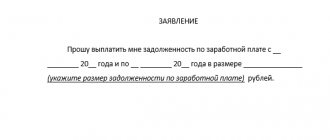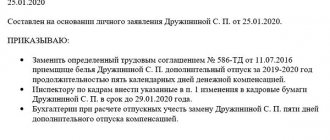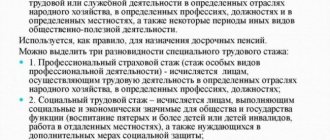What payments are due to an employee of the Ministry of Internal Affairs if he is found to be of limited fitness?
It is worth noting that, regardless of who initiated the termination of the contract - the head of the unit or the employee - upon dismissal, the latter is obliged to hand over the weapons and other property assigned to him, as well as all files, badges and service identification.
Grounds for dismissal with benefits Employees of the Ministry of Internal Affairs have certain privileges. Their work is associated with increased risk, therefore, upon resignation, certain monetary payments are assigned. Payment of monetary allowance for the duration of treatment beyond the specified periods is allowed depending on the conclusion of the military medical commission on the suitability of the employee for further service in the internal affairs bodies with the permission of the Minister of Internal Affairs, the head of the main department (department) of internal affairs for the constituent entity of the Russian Federation, his equals and higher).
The procedure for registering dismissal from the Ministry of Internal Affairs
The contract termination procedure begins with the employee submitting a corresponding report. It is advisable to indicate the reason for your decision in it, and then adhere to the following algorithm:
- A month before dismissal, a report is submitted to the manager. It specifies the termination date of the contract, but by mutual agreement the police officer may terminate service before that date.
- The authorized person draws up a letter of resignation, which indicates the reason for termination of the contract, and also contains information about the state of health, length of service, age and entitlement to social guarantees.
- A dismissal order is issued.
Are payments to an employee of the Ministry of Internal Affairs due to dismissal due to a limited condition?
Study and any other types of activities (work in the penal system, in the State Fire Service, in the prosecutor's office, in party and Komsomol bodies, etc.) are not counted towards the length of service for the payment of a one-time benefit. assignment of pension. In case of repeated appointment to the service, a lump sum benefit upon subsequent dismissal from service is paid based on the total length of service on the day of the last dismissal with offset of benefits paid during previous dismissals from service (in monthly salaries), but not less than two months' salary monetary content.
- those who held full-time positions on the day of dismissal - until the day of dismissal;
- by the day of dismissal at the disposal of the internal affairs bodies - up to and including the day the cases were handed over (payment of monetary allowance is extended for periods of regular annual and additional leave and release from official duties due to illness). In this case, no more than 5 working days are given to submit the cases from the date the department receives the dismissal order.
What monetary payments are due to an employee by law?
You need to know what payments are due upon voluntary dismissal from the Ministry of Internal Affairs in order to declare your rights if they are violated.
Information about monetary allowances is regulated by various legal acts. All payments are made on the last working day on the basis of Article 140 of the Labor Code of the Russian Federation. It is worth understanding what exactly is due to citizens who leave service in the Ministry of Internal Affairs in 2021.
One-time benefit
This type of payment is provided for by Federal Law No. 247 dated November 19, 2011. If a citizen has served for more than 20 years, then he is entitled to seven salaries, and if the service is from 10 to 20 years, an allowance is paid in the amount of five salary parts. If the length of service is less than 10 years, then you can only count on receiving double salary at the time of dismissal.
The salary portion for a lump sum payment consists of the official part and rank. If you have an honorary title or state awards from the times of the USSR or the Russian Federation, you are entitled to a one-time payment in the amount of one additional salary.
Salary
Paragraph 100 of the Order of the Ministry of Internal Affairs of the Russian Federation No. 65 dated December 31, 2013 states that those dismissed from the internal affairs bodies are paid the following:

- those who replaced the position on the day of dismissal - up to and including the day of dismissal;
- who were in possession by the day of dismissal due to a reduced position - until the day of dismissal, but not more than two months.
Everything is done in accordance with the provisions of the Labor Code of the Russian Federation. It must be taken into account that a pregnant woman who is serving in the Ministry of Internal Affairs cannot be fired, even if the staff is reduced.
The same applies to the period when she is on maternity leave. Such employees can be transferred to another position or offered to resign of their own free will.
The desire to resign must come from the employee independently. She cannot be forced to do this, since such actions are considered a violation of the employee’s rights.
Compensation for unused vacation

If an employee of the Ministry of Internal Affairs wrote an application for leave with subsequent dismissal, he receives vacation pay in accordance with the provisions of the Labor Code of the Russian Federation. That is, they are issued on the last working day before vacation.
However, upon dismissal, when compensation is paid for unused vacation, this money is included in the total amount that is issued on the day the work book is received. The amount of vacation pay is determined based on the number of months actually worked.
The accountant must have information about how many vacation days are counted for each day of the month. It is worth noting that citizens must take a vacation every year. But once it is allowed to write a report to receive monetary compensation instead of vacation. In the second year, the employee will no longer be allowed to do the same.
The cost of one day of vacation is calculated based on the average salary. To determine the amount, it is necessary to calculate the cost of one working day. In the case of employees of the Ministry of Internal Affairs, it is not difficult to make calculations, since they receive a fixed salary every month.
Awards
There are several bonuses that employees of the Ministry of Internal Affairs can receive upon dismissal. They are paid voluntarily, based on the financial capabilities of a particular structural unit and the characteristics of the employee’s work.

Here are the bonuses you can expect:
- for exemplary performance of official duties based on the results of work for the last quarter;
- annual bonus for conscientious attitude to official duties;
- severance pay in the amount of one average monthly salary if dismissal occurs as a result of staff reduction.
Also, for less than 20 years of service, when there is no right to a pension, the Ministry of Internal Affairs pays the citizen a monthly salary according to rank. If during the year there was an indexation of payments based on an internal order of the ministry or a presidential decree, then payments to the resigned employee also increase.
Expert opinion
Irina Vasilyeva
Civil law expert
Severance pay is not always paid by default; you need to write a corresponding statement. If a citizen does not submit it immediately, he can do so within three years from the moment the right to receive money from the Ministry of Internal Affairs arises. It is required to indicate in the report the method of receiving money: at the cash desk of a structural unit or to a bank card. The transaction is carried out on the 20th-25th of every month.
If a citizen is called up for military training, the payment stops until the training ends. However, participation in the exercises counts toward the payment period. So, after spending 3 weeks at the training ground and missing one payment, it is impossible to receive it. The issue of receiving compensation for time absent from the main workplace is regulated by orders of the Ministry of Internal Affairs and the relevant Federal Laws.
Payments upon dismissal from the Ministry of Internal Affairs
It is worth noting that, regardless of who initiated the termination of the contract - the head of the unit or the employee - upon dismissal, the latter is obliged to hand over the weapons and other property assigned to him, as well as all files, badges and service identification. All this is left in the relevant departments, and in the personnel department he must receive a bypass sheet and provide it to the boss even before the actual dismissal.
- The head of the unit appoints an internal audit, based on the results of which he makes an appropriate decision and warns about the upcoming termination of the contract in accordance with Part 2 of Art. 85 Federal Law No. 342 dated November 30, 2021 deadlines.
- A conversation is held with the dismissed employee, during which he must be familiarized with his personal file, the grounds and date of dismissal.
- An HR department employee or boss prepares a resignation letter and signs it with authorized persons, and then shows it to the person being dismissed for review.
- The boss issues an order for dismissal from the ranks of the police department and introduces it to the employee against signature.
- On the last day of work with the employee, a full payment is made and a work book is issued.
We recommend reading: Consultations on obtaining a young family program from the state in Krasnoyarsk
Types of basic payments upon dismissal from the Ministry of Internal Affairs
- Cash allowance or, more simply put, salary accrued but not paid on the day of dismissal. Everything is clear here and no additional explanation is required. Also, a resigning employee has the right to receive a regular bonus (quarterly or annual), if the right to receive it is available at the time of dismissal. The amount of the bonus is calculated in proportion to the amount of time worked in the relevant period.
- Payment for unused vacation . This payment is made on the condition that at the time of dismissal the police officer had the right to another paid leave, but did not use it. This payment is provided only at the request of the employee himself, who has the right to refuse monetary compensation and demand that he be given leave in full. Payment for unused vacation is paid regardless of the grounds for dismissal.
- Payment of compensation for uniforms. It is carried out in cases where an employee who has the right to receive material property (uniforms, etc.) has not yet received it at the time of dismissal. As in the case of unused vacation, the resigning employee has the right to refuse compensation and receive the uniform due to him.
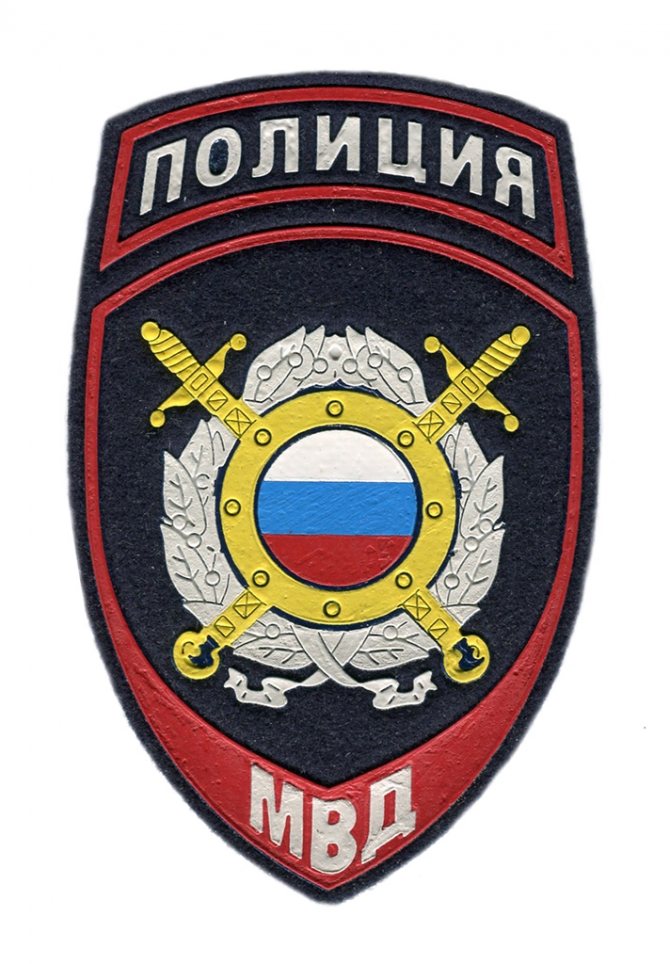
- Payment of a one-time cash benefit (LCB). This type of payment is made upon dismissal for all reasons, except for discreditable ones (due to gross violation of official discipline, commission of a discreditable offense, etc.). At the same time, upon dismissal from service, employees with 20 years of service or more are paid an EDP in the amount of 7 salaries, and those with less than 20 years of service - in the amount of 2 salaries. Under certain conditions, payment of EDP may be denied, for example, in the case of repeated violations of official discipline if the employee has a disciplinary sanction applied in writing.
- Annual salary according to special rank. It is paid within a year after the dismissal of employees with less than 20 years of service in the police department. A mandatory condition for the appointment of this payment is dismissal upon reaching the maximum age for service, for health reasons or in connection with organizational and staffing measures.
- One-time benefit in connection with dismissal for health reasons . The amount of this benefit is 2 million rubles. However, it is paid only to those employees who were injured or otherwise harmed to health in connection with the performance of official duties, and their state of health must exclude the possibility of further service (confirmed by a medical commission). In other words, if a police officer was seriously injured at home, not in connection with the performance of his official duties, he will not be able to count on receiving the specified payment.
The above list of payments is not exhaustive and can be expanded in relation to certain situations. If you have specific questions regarding your alleged right to receive certain payments, ask them and we will try to answer you as quickly as possible.
Payments from the Ministry of Internal Affairs were recognized as limitedly valid
7 clause 1 art. 16 of Law No. 5-FZ of 1994). 9. Preferential use of all types of services of communication institutions, cultural, educational and sports and recreational institutions, extraordinary purchase of tickets for all types of transport (clause 16, clause 1, article 16 of Law No. 5-FZ of 1994).
After listening to the parties, examining the evidence presented, and questioning witnesses, the court comes to the following conclusion. In conclusion, based on the materials of the internal audit from DD.MM.YYYY on the fact of injury by the deputy platoon commander of the OR PPSM Department of Internal Affairs for the city.
Illness or injury: features of dismissal for employees of the Ministry of Internal Affairs
If an employee is diagnosed with a disease that prevents them from fully performing their job duties, or if they suffer an injury related to their professional activities, the employee himself has the right to initiate the dismissal process.
The reason for leaving may be partial or complete loss of ability to work. If there is no chance of returning to previous health, then management also has no alternatives to retain the employee’s previous position. The only reasonable option is dismissal.
Benefits and other payments to employees of the Ministry of Internal Affairs dismissed for health reasons
An unsatisfactory state of the body is grounds for transferring an employee to a position with a smaller volume of work, and in the absence of such, termination of service in the internal affairs bodies. The level of incapacity for work is determined by the military medical commission (MMC), it establishes limited or complete unsuitability for service in the internal affairs department. The procedure for dismissal from the Ministry of Internal Affairs for health reasons, as well as the amount of payments and benefits in 2021, is strictly determined by special laws.
There are several lists of diseases that imply varying degrees of disability and limited suitability for service. In this article we will consider only those that entail complete unsuitability and dismissal. These include:
Tax benefits for pensioners of the Ministry of Internal Affairs
In accordance with the laws of the Russian Federation, employees of the Ministry of Internal Affairs who have reached retirement age can apply for tax benefits.
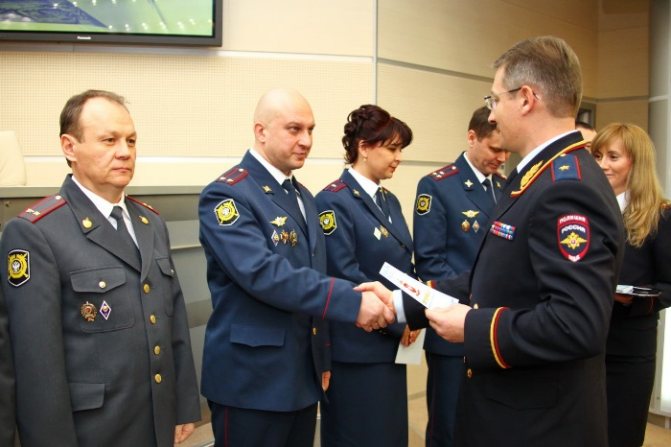
The relaxations are as follows:
- Pensions, as well as one-time payments to improve housing conditions and all kinds of compensation payments are exempt from income tax.
- A pensioner is exempt from paying property tax, but only on one of the properties he owns. For other properties, it is possible to receive compensation for property taxes already paid.
- For the tax paid on a land plot (or several), a pensioner may qualify for compensation.
- In some regions of the Russian Federation (Perm, Samara, Leningrad, Chelyabinsk regions and a number of others), retired persons may qualify for transport tax benefits.
A pensioner can receive compensation for land and property taxes only if he received a pension based on length of service or reaching the appropriate age, or upon dismissal from service or for general health reasons.
The VVK of the Ministry of Internal Affairs was declared unfit for service in the Department of Internal Affairs, what payments am I entitled to?
To receive payment, the dismissed (dismissed) employee submits a report (application) to the head of the department, which indicates the method of receiving payment (through the cash desk at the place of duty where the employee was on pay before dismissal; transfer to a personal bank account; postal order with postage paid collection at the expense of the recipient; in another way) and undertakes to inform in writing the head of the unit about the call for military training or entry into service in the internal affairs bodies of the Russian Federation, or institutions and bodies of the penal system, or the State Fire Service of the Ministry of the Russian Federation for Civil Defense, emergency situations and liquidation of consequences of natural disasters, or authorities for control of the circulation of narcotic drugs and psychotropic substances, or customs authorities of the Russian Federation, or prosecutorial authorities of the Russian Federation, or for military service.
• dismissed from service due to age, illness, redundancy or limited health, with length of service of less than 10 calendar years - 5 monthly salaries, from 10 to 14 calendar years inclusive - 10 monthly salaries, from 15 to 20 calendar years inclusive - 15 monthly salaries and over 20 years - 20 monthly salaries;
Compensations and payments upon dismissal from the Ministry of Internal Affairs at one's own request
There are a number of payments that are due to employees who leave the service at their own request:
| View | Description |
| One-time benefit | With 20 or more years of service - 7 salaries, less than 20 years - 2 salaries |
| Salary | Calculated in proportion to time worked |
| Quarterly bonus | |
| Compensation for vacation days not taken off | Depends on the number of days of rest |
| Award for conscientious performance of official duties | Based on the results of work for the year in which the dismissal is made |
The serviceman is recognized by the Military Military Commission as partially fit for military service
2. Annual financial assistance is paid to military personnel performing military service under a contract (hereinafter referred to as military personnel), in the amount of at least one monthly salary of a military personnel.
- The serviceman is subject to dismissal from military service;
- A serviceman performing military service under a contract may be early dismissed from military service;
- A soldier performing military service under a contract has the right to early dismissal from military service.
The procedure for dismissing a military personnel for health reasons
So, in particular, in accordance with Article 5 of Federal Law No. 53 , a person can be accepted for military service by concluding a contract, conscription or enrollment in the mobilization reserve only after passing a commission medical examination and being declared fit for service.
One more feature should be noted. As a rule, a decision on fitness or unfitness for service is made on the basis of pre-submitted qualification characteristics for a certain type of occupation. That is, an employee may not meet the specified requirements for performing duties in a previous position, but can successfully cope with the duties of another position, while having in hand a certificate of health limitations, which is provided upon completion of the examination to the command of the unit in which the person serves .
We recommend reading: Benefits for pensioners on small boat tax
What payments are due upon dismissal from the Ministry of Internal Affairs with the wording not suitable?
- Receiving injuries and deteriorating health on business trips to places of hostilities and hot spots
- In case of injury or injury while on duty in the performance of official duties
- Receiving injuries, injuries and injuries in the performance of official duties and criminal assault
- Receiving injuries, injuries and injuries while at the workplace during working hours
- Receiving injuries, wounds or mutilations in the performance of official duties while protecting public order without being at work
It is necessary to take into account that, according to judicial practice and current legislation, payments to police officers of two million after dismissal are also due upon continuation of service after being recognized as partially fit and subsequent dismissal.
Obtaining insurance for employees of the Ministry of Internal Affairs, which injuries are covered?
What kind of insurance is required for a police officer in case of injury? Based on paragraph 5 of Article 43 of the Law on the Police, if an employee in the course of performing official functions received an injury or other damage to his health, due to which the further performance of service in the police becomes impossible, he is entitled to a one-time insurance payment, the amount of which is 2 million.
Russian Federation, State Fire Service, authorities for control over the circulation of narcotic drugs and psychotropic substances, employees of institutions and bodies of the penal system; a list of injuries (wounds, injuries, concussions), classified as severe or mild, in the presence of which a decision is made on the occurrence of an insured event for military personnel insured under compulsory state life and health insurance, citizens called up for military training, private and commanding personnel of internal affairs bodies affairs of the Russian Federation, the State Fire Service, authorities for control of the circulation of narcotic drugs and psychotropic substances, employees of institutions and bodies of the penal system. Insurance in questions and answers Insurance of police officers is a mandatory measure set out in the Law “On the Police”.
Step-by-step instructions for dismissal from the Ministry of Internal Affairs
The procedure for terminating a service contract and leaving service consists of several stages. All of them are established by the relevant order of the Ministry of Internal Affairs, so it will not be possible to bypass them.
How to submit a report
Notification of the intention to terminate the official relationship is submitted in the form of a report addressed to the authorized manager in accordance with the one who made the decision to hire the employee. It has a free form of a written document, but must contain all the necessary points that were given above.
The document is directly submitted to the personnel service of the internal affairs body, where it is checked to ensure that all necessary information is provided and that the deadlines established by law are met. It is necessary to ensure that the report is registered, for which it is advisable to have a second copy, on which a mark is placed on receipt by the personnel service employee (full name and position of the responsible person, date of reception).
Conversation about rights upon dismissal from the Ministry of Internal Affairs
This stage is also mandatory and involves an explanatory conversation with the employee from the HR department (and, if necessary, with the involvement of the legal, medical and financial departments of the authority) on the following issues:
| No. | Essence of the question | For whom is it carried out? |
| 1 | Reasons for dismissal (indication of a specific reason in accordance with the wording specified in the law, with reference to a specific norm) | All dismissed persons |
| 2 | What payments are due to an employee in the event of his dismissal from public service? | |
| 3 | What guarantees can a person claim in the process of exercising his right to terminate a contract early and after leaving service? | |
| 4 | What compensation will be paid to such a person upon settlement, and under what conditions? | |
| 5 | The opportunity to send an appeal to the Minister of the Ministry of Internal Affairs with a request to continue to wear his official uniform after leaving service | Persons from among the middle and senior command staff who were nominated for a special rank |
If an employee avoids the conversation or directly refuses to go through with it, then this will not affect the dismissal process. In this case, the personnel employee draws up an appropriate act recording such a refusal.
Passing the commission (VVK)
Although the law does not directly stipulate the obligation of an employee of the Ministry of Internal Affairs to undergo a medical examination upon dismissal, this follows from the norm requiring information about health to be indicated in the resignation letter. An employee can still refuse, but there must be a compelling reason to do so.
It is necessary to undergo the IHC and obtain the appropriate conclusion before the order is issued, but in some cases this procedure can be completed within a year from the date of receipt of the extract or copy of the order. The results of the survey may affect the list of benefits that a former police officer can qualify for.
Issuance of an act (Representation)
After receiving the report, HR employees are required to prepare an appropriate presentation, which is agreed upon with the immediate supervisor of the dismissed person. It must also be agreed upon with the head of the internal affairs body, and the employee must be familiar with it and sign it personally.
This document, among other things, must indicate the total length of service in the police force and the periods of work that were included in this length of service. The indicated periods are indicated in normal calendar terms, as well as in preferential ones (for example, when 1 year was counted as 2 or 3). These periods will be important when establishing the amount of an employee’s pension, as well as when calculating severance (one-time) benefits.
Order of dismissal
The order is the basis for termination of a person’s service in the authorities before the expiration of his contract. On the last day of service, the dismissed person must be familiarized with this act, about which he puts his signature. The order reflects the wording of the grounds for dismissal (in this case, the employee’s initiative). The details of the document (its number and date of publication) are indicated as the basis for dismissal in the labor circle.
Transfer of cases and weapons
The resigning person is obliged to transfer all affairs and property used before leaving the authorities:
| No. | What needs to be submitted | Where to transfer |
| 1 | Weapon | The relevant department that issued them |
| 2 | Property used | |
| 3 | Pinned documents | |
| 4 | Service ID | HR department |
| 5 | Badge (personal police number) | |
| 6 | Information and its media containing state secrets | Department for the Protection of State Secrets |
Preparation of personnel documents
In addition to an extract from the order on termination of service (or a copy thereof), the person must be given his work book. It also reflects information about dismissal according to the general rules for maintaining work records, i.e. there should be indicated:
- serial number of the record;
- reasons (own desire) for dismissal;
- grounds for dismissal in accordance with legal formulations (norm);
- local act, which is the basis for termination of relations (details of the order).
Calculation of payments upon dismissal
The last day of service of the employee is considered the day of his dismissal, therefore the financial department is obliged to finally pay such an employee. The full payment must include the following payments:
- wages (unpaid part);
- compensation for unused vacation;
- severance pay;
- due bonus.
Depending on the conditions of dismissal and the category of the employee, he may be entitled to other payments.
Exclusion of an employee record from the Register
This action must be completed within 1 month. In this case, the beginning of this period is determined by the day the order is issued by which the employee is dismissed from service.
Disability of an employee of the Ministry of Internal Affairs: when assigned, amount of payments and how to register disability
When undergoing a medical examination, doctors determine the level of disability due to circumstances during service. The commission also determines groups, terms of assistance and medical rehabilitation.
- Group 1: employees who have completely lost their ability to work and independent life. Such persons require constant care from relatives or representatives of social services.
- Category 2: persons cannot work or engage in self-care due to health reasons. For such people, partial care and service by others is important.
- Group 3: citizens who have partially lost their ability to work and can work under normal conditions.

